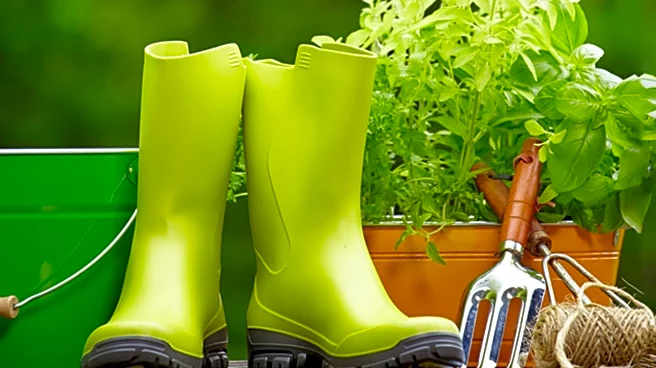What's Happening?
As fall approaches, gardeners are encouraged to undertake essential chores to prepare their gardens for winter. These tasks include protecting outdoor spigots with faucet covers to prevent burst pipes,
moving plants into greenhouses to extend the growing season, and applying winter fertilizers to lawns. Additionally, gardeners are advised to clear gutters using leaf blowers, protect delicate plants with cloche covers, and store patio furniture to prevent weather damage. These preparations are aimed at safeguarding gardens against harsh winter conditions and ensuring a healthy start in spring.
Why It's Important?
Preparing gardens for winter is crucial for maintaining plant health and preventing damage from cold weather. By taking proactive measures, gardeners can protect their investments and ensure that plants and garden infrastructure remain intact. These chores help prevent costly repairs and replacements in spring, allowing for a smoother transition into the growing season. The emphasis on winter preparation reflects a broader trend in gardening towards sustainability and long-term planning, which can lead to more resilient and productive gardens.
What's Next?
Gardeners who complete these fall chores can expect a more manageable spring gardening season. As winter progresses, they may need to monitor weather conditions and make adjustments to their preparations, such as adding additional plant covers or adjusting greenhouse settings. In spring, the focus will shift to revitalizing gardens, planting new crops, and addressing any damage that may have occurred during winter. Gardeners may also explore new techniques and products to enhance their gardening practices and improve sustainability.
Beyond the Headlines
The emphasis on fall garden preparations highlights the growing awareness of climate impacts on gardening. As weather patterns become more unpredictable, gardeners are increasingly adopting strategies to mitigate risks and ensure plant survival. This trend may lead to innovations in gardening products and techniques, as well as increased interest in sustainable practices. Additionally, the focus on garden preparation reflects a cultural shift towards valuing outdoor spaces and investing in their upkeep, which can enhance quality of life and community well-being.









